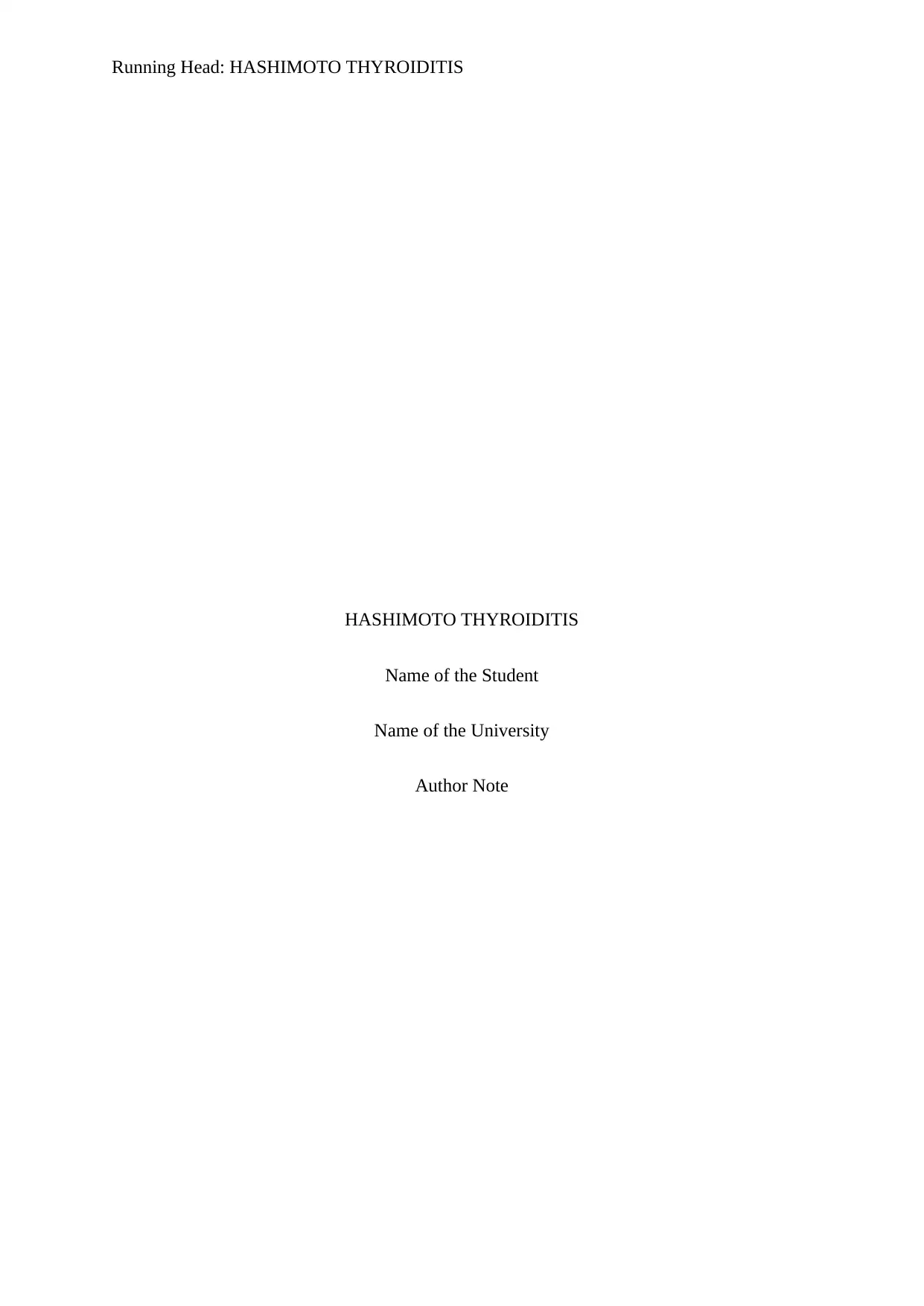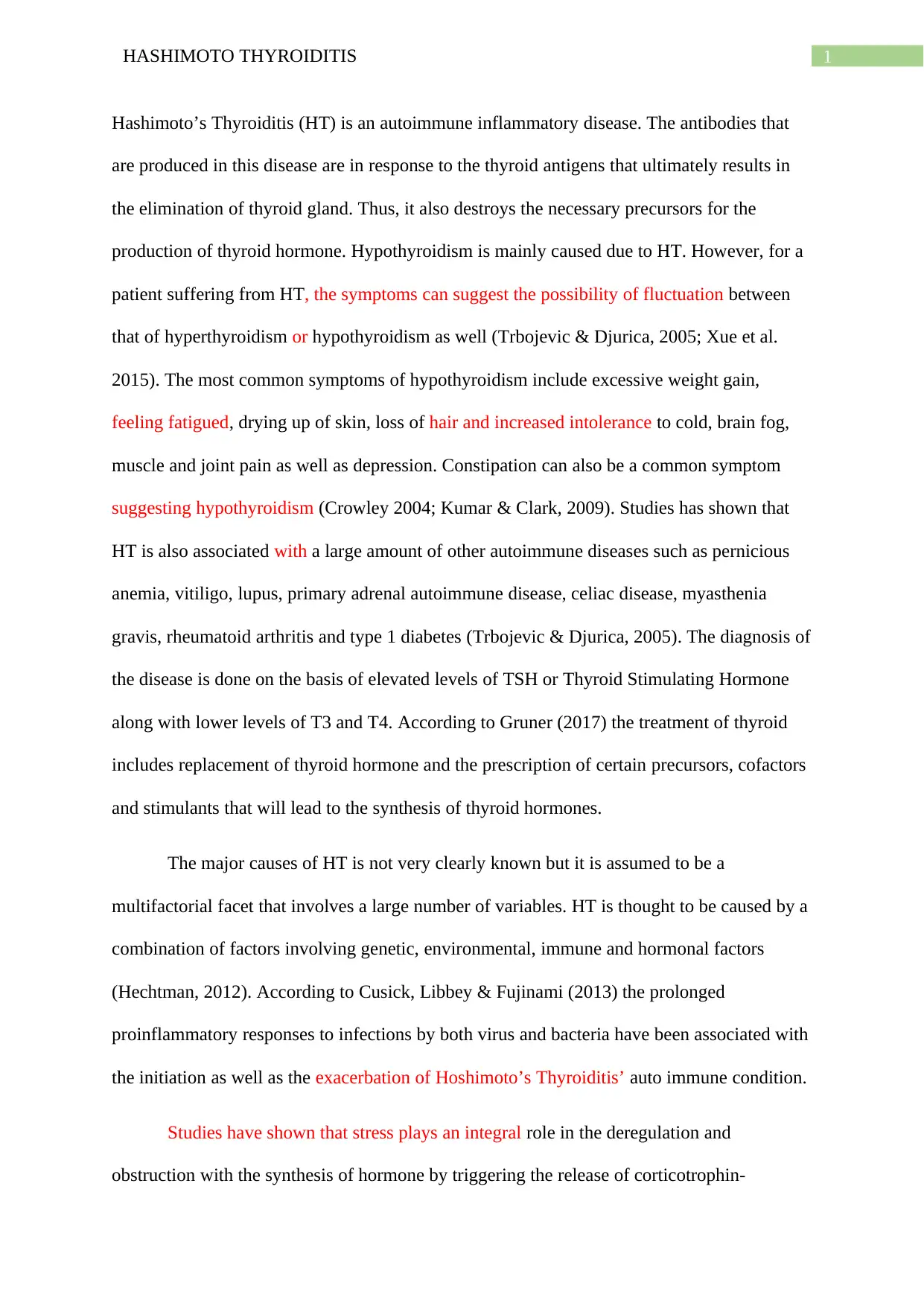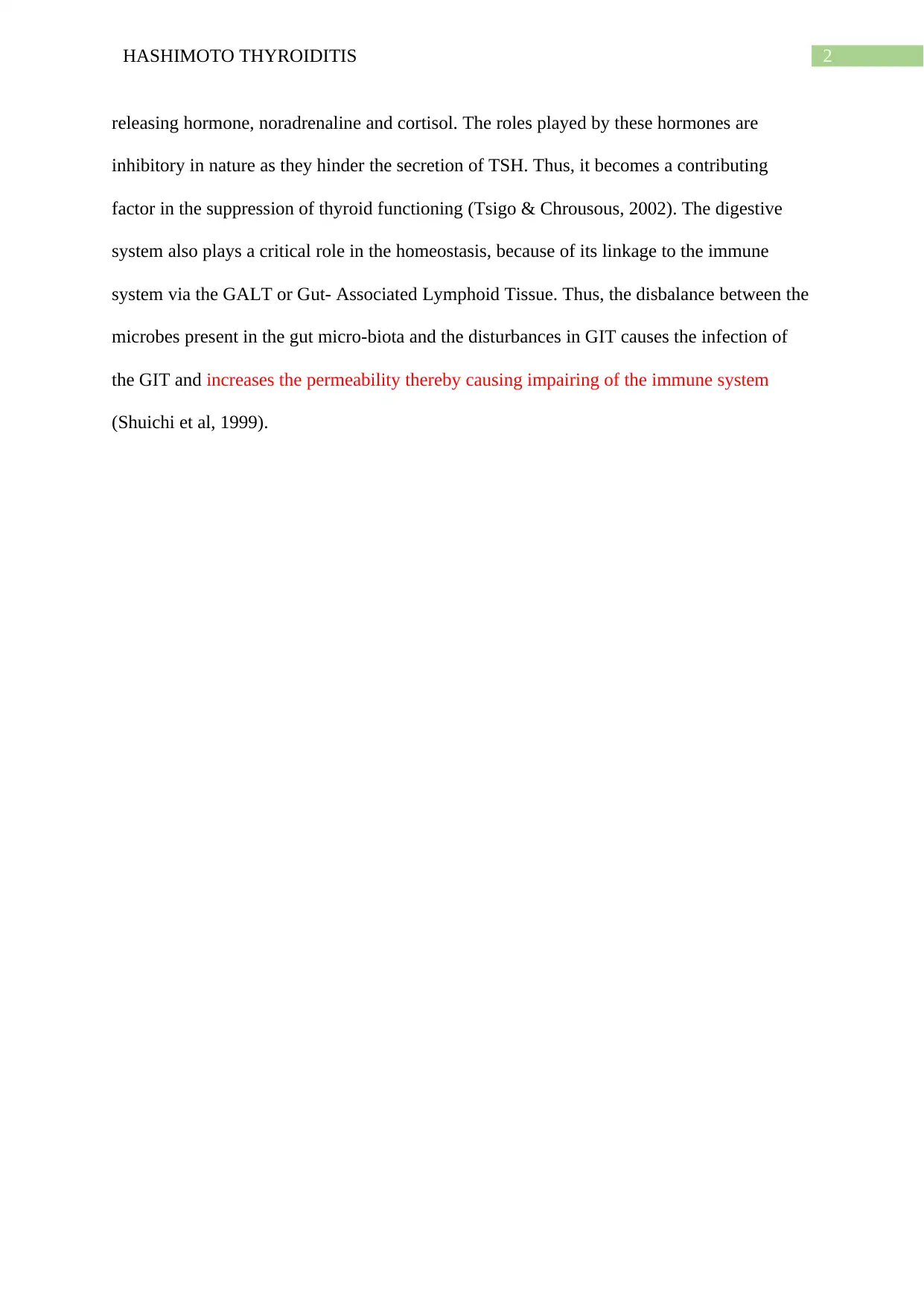Understanding Hashimoto's Thyroiditis: Symptoms, Diagnosis, & Causes
VerifiedAdded on 2023/03/30
|3
|460
|350
Report
AI Summary
This report provides a detailed overview of Hashimoto's Thyroiditis (HT), an autoimmune inflammatory disease characterized by the production of antibodies against thyroid antigens, leading to the destruction of the thyroid gland and subsequent hypothyroidism. The report discusses the symptoms of HT, which can fluctuate between hyperthyroidism and hypothyroidism, and includes weight gain, fatigue, dry skin, hair loss, and intolerance to cold. It highlights the association of HT with other autoimmune diseases and explains the diagnostic process involving elevated TSH levels and low T3 and T4 levels. Furthermore, the report outlines the treatment strategies, including thyroid hormone replacement and the use of precursors, cofactors, and stimulants for thyroid hormone synthesis. The etiology of HT is explored, emphasizing the multifactorial nature involving genetic, environmental, immune, and hormonal factors, as well as the role of prolonged proinflammatory responses to infections and stress. The importance of the digestive system and gut microbiota balance in immune system regulation is also discussed.
1 out of 3








![[object Object]](/_next/static/media/star-bottom.7253800d.svg)